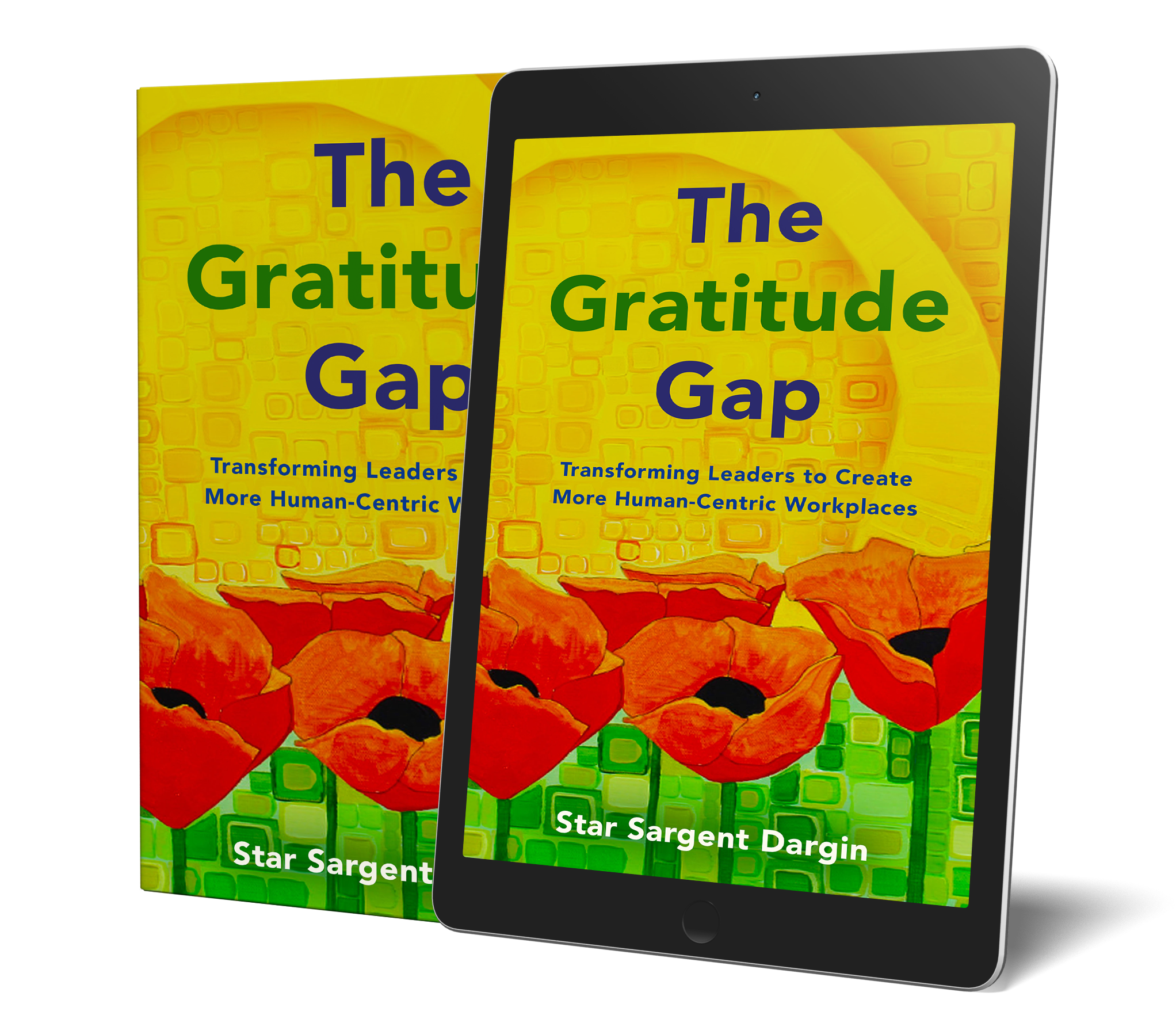Gratitude is part of a large family of related terms, positivity, happiness, optimism, and joy. Many of its family members produce the same feelings as gratitude and use some of the same body feel-good chemicals, like: dopamine, oxytocin, serotonin, and endorphins.
Trust is also part of a larger family of related terms, character, credibility, competence, consistency.
Both trust and gratitude are invisible and being bantered about a lot now. Trust is key to success. One study by Harvard Business Review says,
“people at high-trust companies report 74% less stress, 106% more energy at work, 50% higher productivity, 13% fewer sick days, 76% more engagement, 29% more satisfaction with their lives, and 40% less burnout than people at low-trust companies.”
Many leadership models are built on trust, like Covey’s The Speed of Trust and Lencioni’s The Five Dysfunctions of a Team.
This chart shows the relationship between trust and gratitude.
Low trust, low gratitude: Imagine someone you don’t trust, don’t like, and they are not your manager. What are typical responses when they ask you to do something? Ignore them. Make it a low priority. Don’t do it. Research the person and the request.
Low trust, high gratitude: Imagine a person you don’t trust but are grateful for their competent and credible work. If this person asks you to do something, does it change your immediate response to their request? Probably, you would do it, but not wholeheartedly.

High trust, low gratitude: How about someone you trusted but didn’t appreciate their abilities, and they asked you to do something? Would you do? You might do it reluctantly and want to know more before you start.
High trust, high gratitude: Now, think of the person you trust most and are grateful for, and they ask you to do something, even if it is not part of your job. What would your response be? Typical responses are to do the task in a high-quality way and do it fast.
Gratitude with trust changes the quality and speed of how people respond and how work is performed.
Gratitude is a foundation that builds and enhances trust. Trust creates and validates gratitude. Build both for better outcomes.
How would you respond to a request in each of the quadrants?
References:

